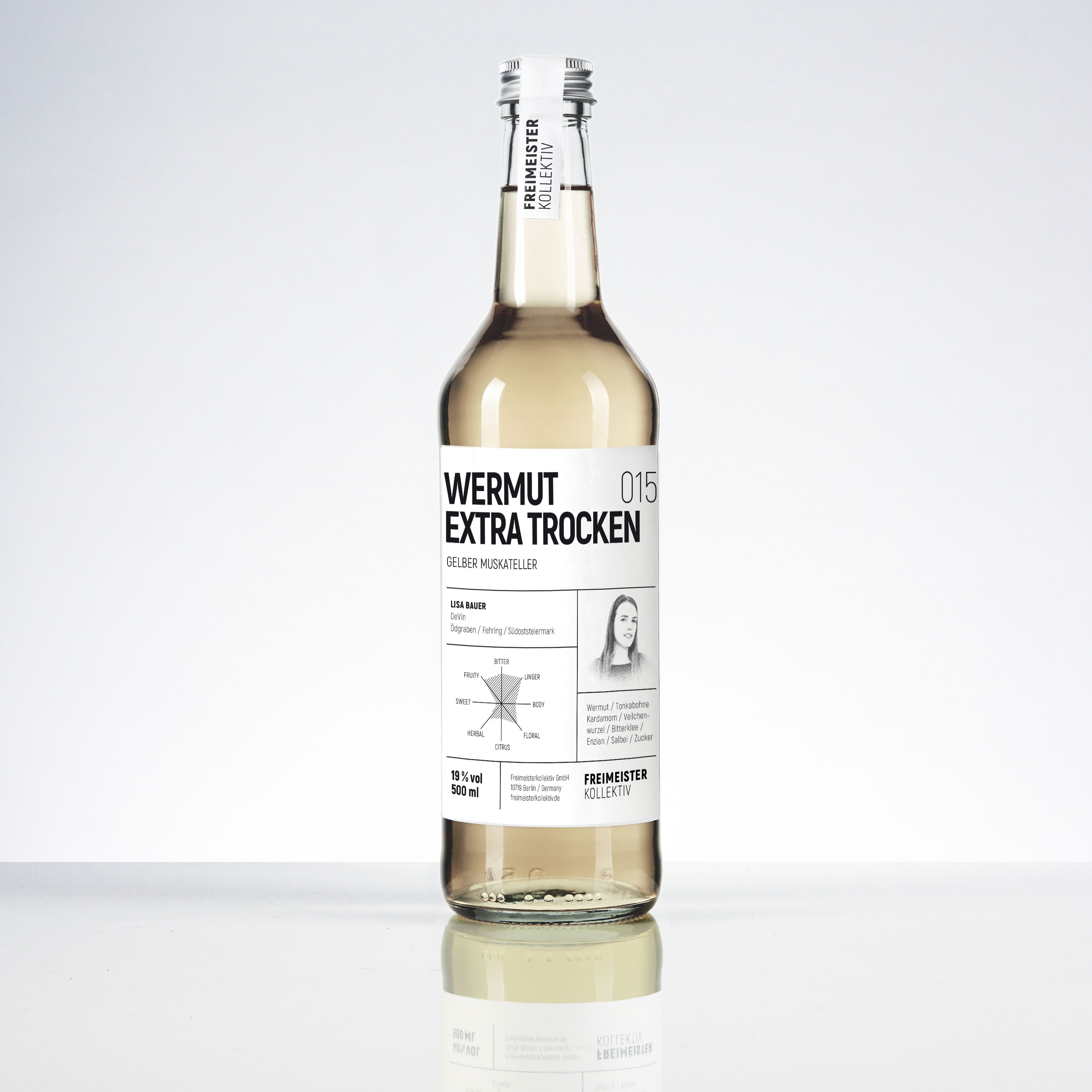Vermouth is a fortified wine which takes its name from “Wermut”, the German word for wormwood (Artemisia absinthium). Our VERMOUTH EXTRA TROCKEN 015 consists of over 95% wine and distilled wine. Thus it is clear: an outstanding, quality vermouth requires the best wine. And for the Kollektiv it was clear: a unique vermouth could only be developed if we could find a Freimeister who was both an experienced winemaker and excellent distiller. After a long search, we found who we were looking for in the south-eastern corner of Styria, the so-called volcanic land where the borders of Hungary, Slovenia and Austria meet.
Lisa Bauer is a winemaker and distiller who has acquired a wealth of international experience, despite her young age of 28. The perfect Freimeister to create an outstanding vermouth, she is based in a region renowned for the cultivation of Muscat Blanc à Petits Grains, the most favored grape variety of the old vermouth recipes.
Wine Aroma, Green Herbs, Woodruff, Sage
Nutmeg, Orange, Peach, Tangy and Fresh
Wormwood, Bitter Notes

Wine and Brandy from Moscato Giallo (Yellow Muscat), Artemisia Absinthium, Acorus Calamus, Dittany (Origanum Dictamnus), Tonka Bean, Achillea, Cardamom, Orris Root, Buck Bean (Menyanthes), Gentian, Sage
- Sulfites
-

Lisa Bauer
Distiller, Winemaker | Fehring, Styria
Lisa Bauer grew up in the Styrian volcanic region, the daughter of a winemaking family. The Bauers run a small mixed farm here, along with a “Buschenschank” tavern typical to the region, serving self-pressed wines and cold dishes.
Lisa received her initial training in the College of Viticulture Silberberg, Styria and later graduated with A-Levels and a Bachelor degree from the Federal College of Viticulture and Pomology in Klosterneuburg, near Vienna. In addition to studying viticulture and oenology, she has acquired extensive expertise in fruit processing, mashing and distillation. She had already been familiar with distilling since her childhood, when the homegrown fruits of the family farm would be distilled in a small 90-liter pot still.
As an intern at a Mallorcan wine estate, Lisa learned to make gin in the associated distillery. Following her apprenticeship, she was employed as a distiller in a big distillery, which processed up to 2 million kilos of pears, plums and apricots annually. In 2016, she worked at a winery in Casablanca, Chile and in a bodega in Argentina. There she was involved in setting up the new Casa Tapaus distillery, which distilled the pomace of the winery for grappa, and she was also responsible for the development of its first gin.
At the end of that year, Lisa returned to Austria and founded her own gin brand. She wants, as she emphasizes, “to distill opulent gins that stay in your memory. Lots of juniper and many botanicals should create a complex taste pattern.”
Due to her excellent education and many years of experience, Lisa Bauer is already a true connoisseur of aromas and herbs. She creates recipes like a perfumier, planning in advance exactly which aromas and drugs are needed for the perfect composition.
For Freimeisterkollektiv, Lisa developed her first vermouth.

